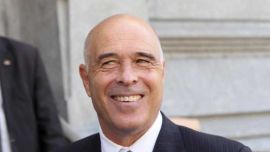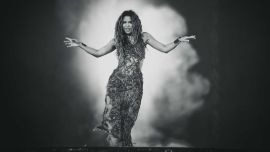I first got to know Andrew GrahamYooll some time in mid-1976, a few weeks before he was driven into exile by the threats of the bloodiest dictatorship ever suffered by Argentina. It was in Robert Cox’s country home in Don Torcuato, which during the weekends became an improvised football pitch for Cox’s five children and the infinite number of tiny tots who were their friends.
Andrew, then 32, and Bob, 42, were the only two journalists covering the violence unleashed by the military dictatorship on our country. But what struck me most that day between glasses of wine, morsels of asado beef, songs and guitar music were their bushy beards – the kind of beard which the military stigmatised as "subversive" and which would prompt any patrol car to pick you up off the street and take you to the nearest police station for a shave.
Then 22, I was already writing for the Buenos Aires Herald. And I had already been arrested by plain-clothes policemen, who let me walk out of the police station where they had taken me (where I could hear people being tortured) because I was accompanied by an English girlfriend and they preferred not to get into trouble over that.
Just like thousands of other Argentines, I read the Herald of Bob and Andrew to find out what was really happening in Argentina and not the sanitised fantasy sold by the major media outlets like Clarín, La Nación and even La Opinión.
There exists a conspiracy theory that the Herald could do what it did because we were "English" – a comforting idea for those journalists who covered up the dictatorship’s crimes because it justifies their cowardíce, and which also inflames the fierce denialism across the political spectrum.
All this can be answered with just one word: "No." Andrew was an Argentine born in Argentina with a British passport. Despite this, he already had to flee into exile in 1976 within a short time of my having made his acquaintance. Although he soon shaved off his beard because it was too dangerous, Bob also had to go into exile with his Argentine wife, his five Argentine children and their dog in late 1979.
I entered the newsroom in April,1977, not to replace Andrew, who was irreplaceable due to his contacts and his investigative reporting, but simply because his departure opened up room on the payroll for somebody new.
That day I first got to know him at Bob’s country house, Andrew was in some way the same Andrew whom I saw for the last time at a meeting in Buenos Aires a couple of months ago. That first afternoon, 43 years ago, he chided me because a song which I sang during dessert was not politically relevant.
It was a sign of the caustic humour which he never abandoned – to identify the conflict zone and stick his nose in there. It was the same method which he employed in his journalistic investigations – to go where nobody else dared.
Last Sunday evening (July 7) at the Haroldo Conti Cultural Centre, I presented the documentary film Messenger on a White Horse about Robert Cox and his time at the Buenos Aires Herald,a work in which Andrew appears several times.
In the film, Andrew says something which is both a self-portrait and which portrays the Herald and the difference between it and the rest of the press in that period.
It has that blend of British sangfroid and Argentine cunning, which was Andrew’s trademark: “Of course we were scared at the Herald. But it’s one thing to be scared and another thing to be a coward."
That showing of Messenger on a White Horse was dedicated to Andrew.
























Comments